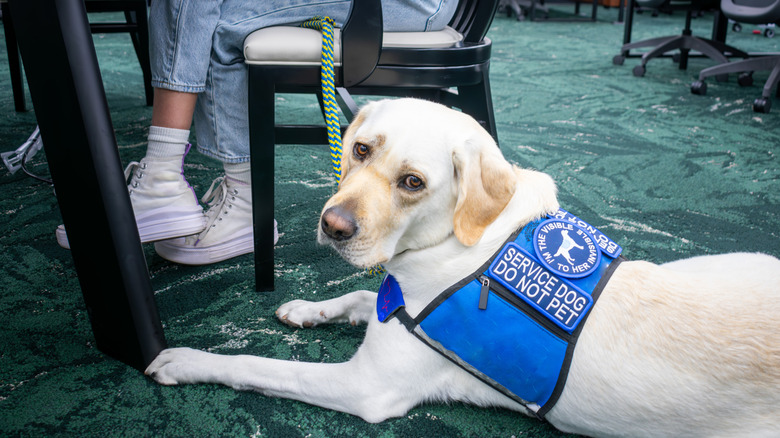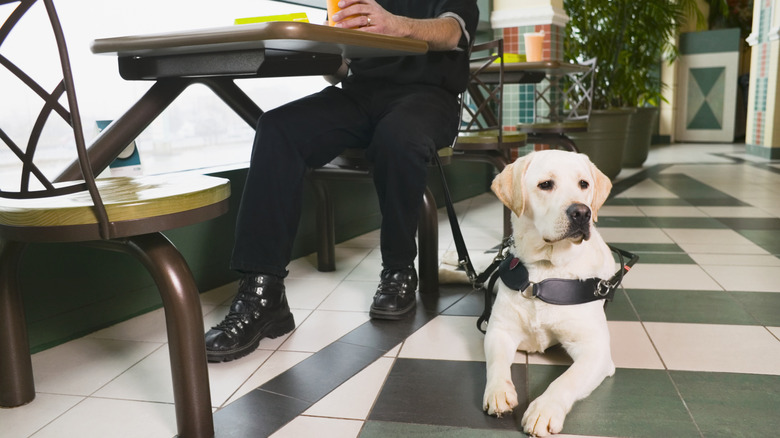Are Service Dogs Allowed In Restaurants (What About Michelin-Starred Ones)?
Dining with your pets can be fun, but many restaurants are wary of allowing animals. However, under the U.S. Americans with Disabilities Act (ADA), service animals are broadly permitted in any place of public accommodation, including restaurants. The key distinction is the type of animal: By law, only dogs (and in some cases miniature horses) trained to perform specific tasks qualify as service animals. Restaurants may ask two limited questions, such as, "Is this a service animal required because of a disability?" and "What work or task has it been trained to perform?" They cannot, however, require proof, certification, or vaccination records.
That means a person with a legitimate service dog cannot be refused entrance simply because of the animal, and restaurants must accommodate them so long as the dog is under control and housebroken. The only time refusal is allowed is if the animal does not meet that criteria — and the handler doesn't effectively fix the behavior — or if its presence would fundamentally alter the business.
These rules apply to all full-service restaurants, whether casual diners, fine dining establishments, or Michelin-starred venues in the United States. That said, some restaurants may push back or interpret what constitutes an "out of control" dog loosely, so individuals with service dogs sometimes face resistance or extra scrutiny. In some jurisdictions outside the U.S., local laws vary; in many European countries, service animals are allowed, but restaurants may also impose additional hygiene or insurance requirements.
Advance notice helps service dogs access all dining
Service dog handlers may face practical and cultural challenges when dining at Michelin-starred restaurants, despite their legal rights. Since these venues often operate under strict standards for fine-dining etiquette — even though more casual chain restaurants can also receive Michelin stars — they typically insist on maintaining a curated ambiance, strict decorum, and an unbroken dining flow. Though service dogs are legally allowed, restaurant staff may worry about disruption, insurance liabilities, or aesthetic concerns. Some upscale venues may try to suggest service dogs sit in less central seating or use discreet routes, though denying entry outright violates ADA protections in the United States.
Because Michelin restaurants frequently rely on precise presentation, tight table spacing, and multi-course formats, handlers of service dogs may politely request accommodations. Advance notice can be very helpful — informing the restaurant ahead lets them prepare seating, avoid narrow passages, or alert staff that a service dog will be present. Many elegant restaurants are willing to adjust in good faith if forewarned.
Aside from logistics, cultural norms sometimes influence attitudes. In countries where service-animal laws aren't as well established or enforced, some Michelin houses may have less experience integrating service dogs seamlessly. In those settings, diners carrying documentation or letters from disability professionals may reduce friction, though again, legally, such proof should not be required where ADA or equivalent laws govern.
In the end, Michelin status does not legally allow exclusion of service dogs — but communication, goodwill, and staff training smooth the way. Knowing one's rights, giving the restaurant notice, and expecting practical flexibility tends to make the experience smoother (and ensures the service dog's inclusion without compromising the dining experience).


